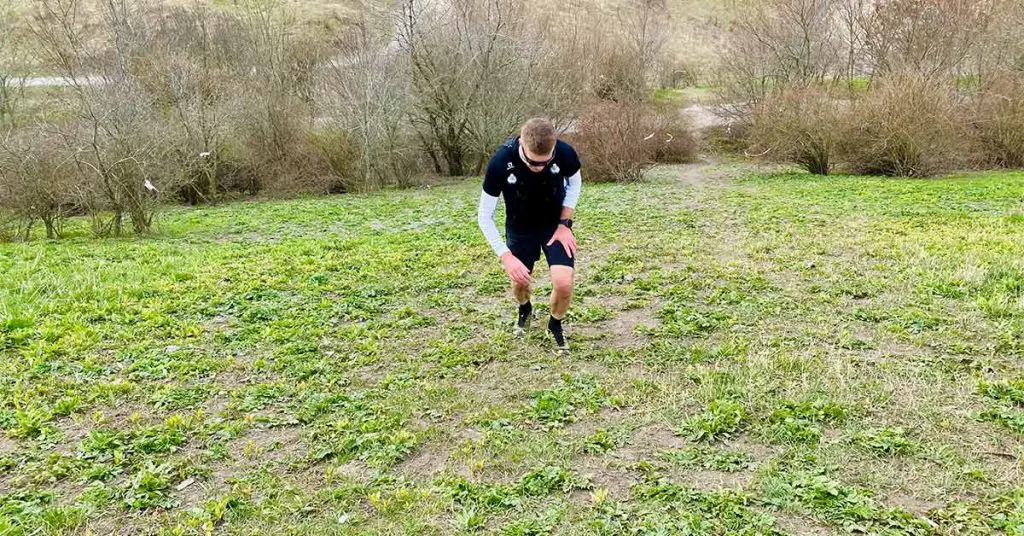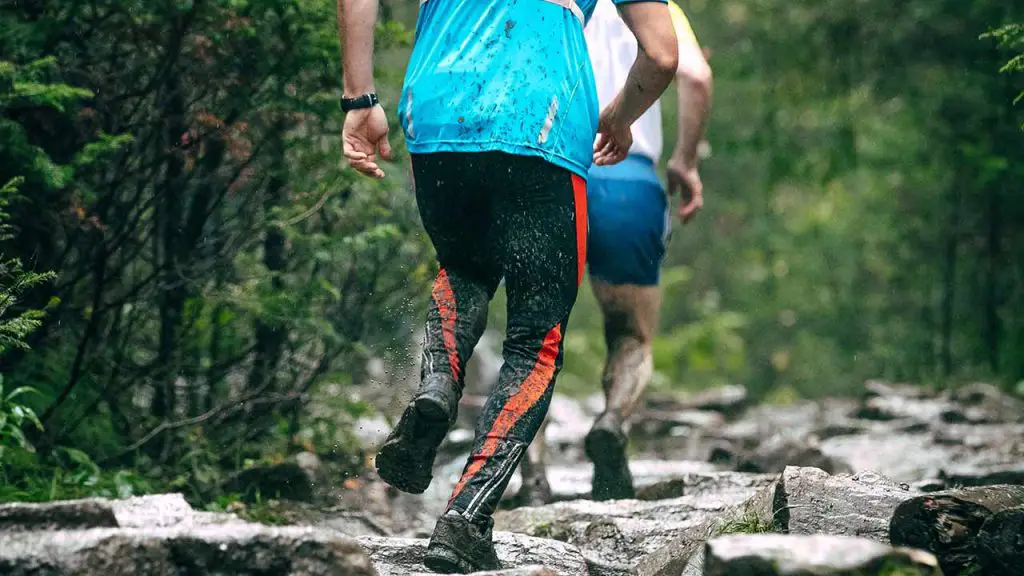Estimated read time: 3 minutes.
Most trail runners have a background in the road running world and are used to running at a faster pace. You will soon find out how slow the pace will be on trails when starting with trail running.
So whats a good trail running pace? You will run about 10 to 20 percent slower than your average road running pace. So if you usually run a 10-minute mile for easy runs, then expect 11 to 12 minutes.
All of this depends on the ruggedness of the trail itself. You could be running on wide, smooth single-track trails, or it could be rocky with lots of up and downs – ultimately, it is how hard the path is that will determine what pace you should go at.
Remember that injuries can happen when not taking it easy enough or running too hard, especially if you are new to trail running and not used to the terrain. Read more about trail and road running injuries.
How Do You Calculate Your Trail Pace?
The easiest way is, of course, if you have a GPS watch and you can download the GPS data from it. Other benefits include map and elevation data and the that you could see the pace in real-time. The average pace and split times are also possible.
Another alternative that you could use is your mobile device and a running app like Strava, Runnkeper, or Apple Fitness. This will ruffly give you the same type of information that a GPS watch would provide.
An excellent app to use is Strava because it has information about other runners and how fast they are going in different segments, which can give you an idea of where you are compared to other trail runners.
If you don’t have the alternatives above, you could calculate your trail pace manually by measuring the distance you have run, and the time it took to complete that segment. And then use the formula:
Pace = Time / Distance
It is essential to know your trail pace to achieve all of your goals!
Pick Your Running Path
While on the trail, it is best to pick your path based on the obstacles ahead. If you know there will be rocks and roots, choose where to land your feet accordingly. This way, you can keep a steady pace without tripping or losing momentum.
As with any sport, the more experienced you are, the better you can control your pace, effort level, and breathing. With experience, you will improve your ability to run on different surfaces and slopes, which will help your endurance and fitness.
It is not always about racing up hills or finishing fast. Sometimes it is more important to enjoy nature and take in the experience of being out there than for you to be at a certain pace. Remember, the goal is not always to go fast.
Average 5k Trail Run Time
If your average 5k road run time is 30 minutes, expect it to be around 33 to 36 minutes on the trail. As we mentioned earlier in the article, you will run about 10 – 20 percent slower on the trails.
What Is a Good 10K Trail Run Time?
A good 10K trail running time is around sub 50. The 10K trail run takes on a much more challenging feel. If your average 10k road run time is 60 minutes, expect it to be around 66 to 72 minutes on the trail.
Average Trail Marathon Time
The average Marathon Running Time on asphalt is 4 hours, 32 minutes, and 49 seconds. Using our formula, 10 – 20 percent slower for a trail run will have around 5 hours and 21-28 minutes, depending on trail conditions.
Conclusion
Trail running can be a lot of fun, but it’s essential to go into it with the understanding that your pace will be much slower than on the road. If you’re starting, remember to take things easy and not push yourself too hard – injuries are common when runners aren’t used to the trails. With some experience, you’ll get better at gauging how fast you can run on different surfaces and different terrain.
And finally, always remember that trail running isn’t always about racing – sometimes it’s more important to enjoy nature and take in the experience!
- How Many Laps Around a Track is a 5K: Your Guide - October 22, 2023
- When is Track and Field Season? - October 22, 2023
- Understanding the Length: How Long Is a Running Track? - October 22, 2023




